The views expressed in our content reflect individual perspectives and do not represent the authoritative views of the Baha'i Faith.
Sticks and stones can break my bones but words will never harm me.
Everyone knows this children’s rhyme—but do you know where it came from? It first appeared in The Christian Recorder, a publication of the African Methodist Episcopal Church, in 1862. Maybe it arose out of AME church members and their children defending themselves against racist taunts and verbal attacks.
I sure heard that rhyme as a kid. I said it myself multiple times, thinking of it as a consolation, but the ire and madness at the verbal slights from others welled up in my heart anyway. Then they exploded, a few times in fisticuffs, twice in knife fights–no one injured, thank goodness. A serious cutting could’ve landed me on probation or worse, in jail. Who knows if an ambulance would’ve helped.
Words, bad words, or attacks on character, always sting. Not only sting, they hurt. They can hurt worse than a physical wound, and last much longer. Baha’u’llah wrote:
He must never seek to exalt himself above any one, must wash away from the tablet of his heart every trace of pride and vainglory, must cling unto patience and resignation, observe silence, and refrain from idle talk. For the tongue is a smouldering fire, and excess of speech a deadly poison. Material fire consumeth the body, whereas the fire of the tongue devoureth both heart and soul. The force of the former lasteth but for a time, whilst the effects of the latter endure a century. – The Book of Certitude, p. 193.
Just as harsh words can injure, a kindly tongue can work miracles in human responses. For Baha’is, this is no mere aphorism or philosophical bon mot. Baha’u’llah shows us how to acquire such kindly and effective speech:
Human utterance is an essence which aspireth to exert its influence and needeth moderation. As to its influence, this is conditional upon refinement, which in turn is dependent upon hearts which are detached and pure. As to its moderation, this hath to be combined with tact and wisdom as prescribed in the Holy Scriptures and Tablets.
O My Name! Utterance must needs possess penetrating power. For if bereft of this quality it would fail to exert influence. And this penetrating influence dependeth on the spirit being pure and the heart stainless. Likewise it needeth moderation, without which the hearer would be unable to bear it, rather he would manifest opposition from the very outset. And moderation will be obtained by blending utterance with the tokens of divine wisdom which are recorded in the sacred Books and Tablets. Thus when the essence of one’s utterance is endowed with these two requisites it will prove highly effective and will be the prime factor in transforming the souls of men. – Baha’u’llah, Tablets of Baha’u’llah, pp. 198-199.
How do we exercise this kind of kindly speech? How many times are we loathe to give up on our views, and argue what we believe is “the most correct,” over another’s? Attached to our own views at the expense of listening fully to another’s, of course alienates us and keeps us in our own reality, right or wrong. Tact does not emanate naturally from naturally selfish creatures. It takes knowledge and wisdom to learn and apply, just as every schoolteacher is trained to develop their pupils for the age, and capacity, and intelligence they each possess. Tact and wisdom come from learning the world’s Scriptures, which contain universal, spiritual and life-giving purpose. Yet tact and wisdom from knowing the Scriptures, though necessary, is not enough.
Our ideas and where they belong often conflict with other’s sense of their ideas. The basic spiritual rule of moderation in all things allows an exchange of thoughts, realities and ideas; which lead to tolerance and acceptance rather than outright rejection as an opposing view. Here Baha’u’llah shows us he understands human nature deeply, and that he can enlighten us with the beauty and moderation of his words.
Baha’u’llah reminds us that only the Word of God, unlocked in the sacred Books and Tablets (the Scriptures), will provide divine wisdom. Moderation and kindness in uttering your words, in response to the yearnings of every human heart, will indeed penetrate consciousness and can change entire lives.
You May Also Like
Comments










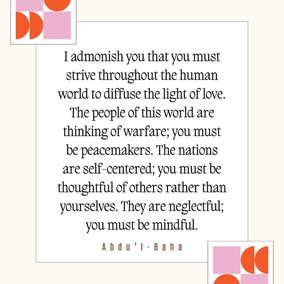
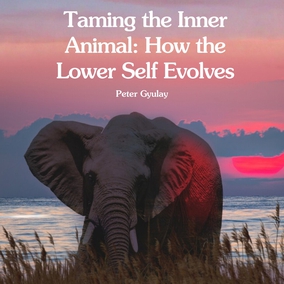
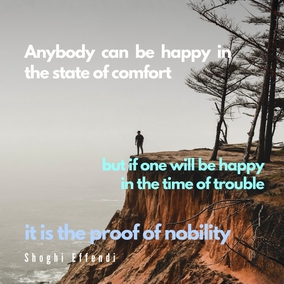
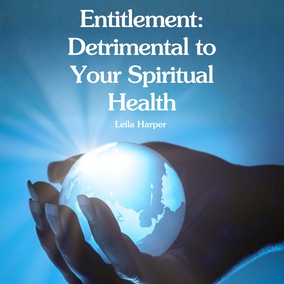
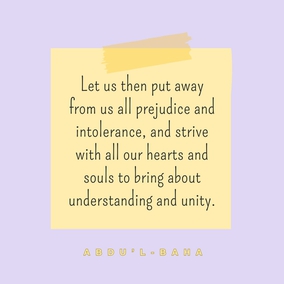
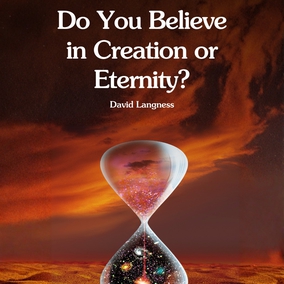

Thank you for sharing your thought on Baha'u'llah's counsel to develop a kindly tongue. It shaded much light on the frame of mind and the condition of the soul necessary to "consult" and engage in "elevating conversations" effectively. Very well done.
Frank Sheffey